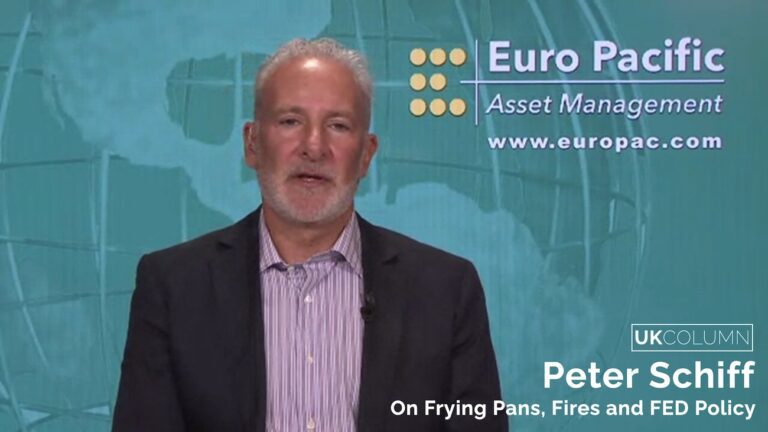The interview (filmed before the recent banking crisis) begins with footage of Peter Schiff from 15 years ago. Henry Hazlitt Memorial Lecturethe subject is the U.S. national debt. Despite what could be a boring subject, Schiff gets the audience in fits of laughter. The comedy comes from a truth being revealed. The truth in this case is that the U.S. needs to forgive its debt by defaulting or printing money, inflating its currency and devaluing its debt burden. There is no way the debt will ever be paid off.
And today, nothing has changed except the headline figure that the total debt stands at about $32 trillion. The political debate on raising the debt ceiling is underway in the US Congress. Peter Schiff points out the reality: the US will continue to borrow more and more until no one will lend it to us anymore, until the market realizes that they are dealing with a Ponzi scheme.
Schiff also analyzes the difference between the United States and Japan, which has a larger government debt than the U.S. He concludes that the U.S. is actually in a worse position than Japan because of the amount of U.S. debt held by foreigners and the U.S.'s large trade deficit.
The interview addresses the issue of pensions. Because pension contributions are treated as part of general tax revenues and those currently contributing to the social security system rely on future taxpayers rather than on reserved values, pensions have now become an intergenerational Ponzi scheme. Of course, the position of future taxpayers, their ability to pay, and the impact of taxation on their lives is unclear at this point. But as time passes and the debt burden grows, more and more people are unable to build a family and a home. The intergenerational theft of the future of the young for the comfort of retirement for the elderly cannot be politically ignored forever.
In their discussion, David Scott and Peter Schiff predicted a banking crisis in the spring of 2023. They point to the willingness of central banks to reverse course to rescue financial institutions. They also discuss the recent failure of Liz Truss (an inflationary policy of tax cuts without corresponding spending cuts) and consider the need for cuts in government spending.
Schiff points out that in the big picture, it's the value of U.S. financial assets that supports the dollar. If demand for those assets falls, he concludes, the value of the dollar must fall with them. He advises Britons that divesting from British assets to U.S. assets is like jumping from fire to fire.
Would the solution be war? Peter Schiff replies that war doesn't solve anything, especially inflation. Rather, it diverts production away from goods people need, to produce munitions and tanks and pay the soldiers. Schiff emphasizes that the United States cannot afford to maintain peace, let alone war. However, he acknowledges that war is a distraction, and politicians may seek such distractions despite the negative consequences.
Peter Schiff is Youtube, Sifgold News and Euro Pacific Asset Management.


